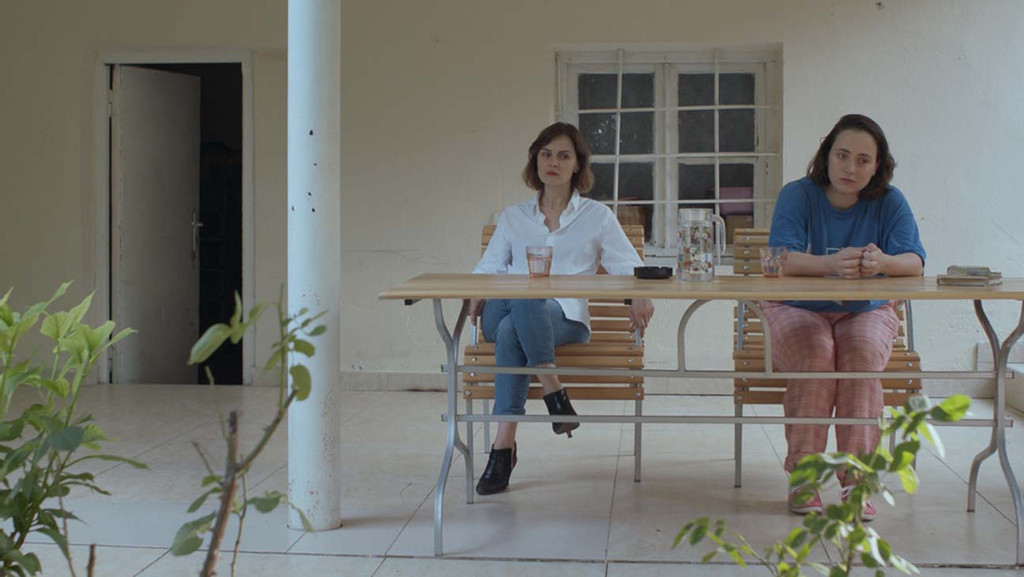What could have been, what might have been and all of the things we’ll never know; reflection and regrets are the final killers in life, looking back at the way we squandered moments and now come to realise their significance – perhaps no more so than when it comes to romance. Set in the Georgian countryside, Tamar Shavgulidze’s Comets tells the story of two teens in love and their later years with entirely different and separate lives. When young Nana and Irina forged a romantic connection, the pair were ostracised, with Nana later marrying a man and having a family and Irina a hard worker leaving for Krakow. Looking to confront the past, Irina returns to where she spent days nestled together with Nana watching films to find out what happened and if a spark remains.
Shavgulidze has little difficultly in occupying space, not only in the emptiness and scale of the camera shots but in her efforts to keep us locked into the gaps in dialogue or action. She directs focus towards the conversation and the minute detail of expression in the nostalgic scars both Nana and Irina bear. The film chooses to confront emotions, holding the gaze and refusing to move away. The engrossing sensitivity of lead performers Nino Kasradze and Ketevan Gegeshidze enraptures a delicate script, controlling the gentle flow of the film and almost merging with the pastel nature of the background for an easy, if occasionally mundane, watch.
A grounded figure, Gegeshidze’s older Nana maintains the earlier connection she and Irina shared as teenage lovers pried apart by bigotry and systemic paragons. The more carefree Irina, with her heart set on travel and more open adventures, roots herself in the secure arms of Nana, something which is cautiously toyed with as adults. Shavgulidze’s film has exceptionally clever fragments of reminiscence and performance, leaving enough breadcrumbs to string the initial two-thirds of the film together before dropping the entire loaf for the finale.
Patience is a virtue and one which Shavgulidze tests throughout Comets. Grave concerns begin to bubble within as the conclusion strays from any path of coherence, seeking a twist or shock ending rather than one which has been meticulously building. A misstep, without revealing the grit of the finale, from what the audience has been experiencing comes as a slap in the face as Comets takes a drastic turn, shredding the decency placed with the audience and leaving them cheated in a way that makes one wonder if patience is less of an attribute and more a curse.
With an ear for detail, the obscure avant-garde nature which lies beneath the initial expectations of Comets reveals itself not in the transitional visuals, but audio-design ripples. The principal storytelling mechanic of the film is a dramatic series of switches between memories and is unfitting with its conjectured science-fiction elements. Steadily, one begins to realise the illusion of cinematic space transcends a one-dimensional plane and starts to stem itself into audio clues, moving back and forth not as flashbacks but almost a shifting of perspectives of young and old.
With budgetary and timescale restrictions, Comets demonstrates the flourishing nature which takes creative calculations with varying results. Shavgulidze’s Comets spends much of its time taking authentic, if risky, decisions to validate the genuine depiction of relationships and the idea that love can exist even if we take different paths. However, the dip into science fiction in a more prominent manner – the conceptual ‘alien’ nature of relationships – is too frank a turn to become effective, dashing the reward audiences had for their diligence and patience.


Comments